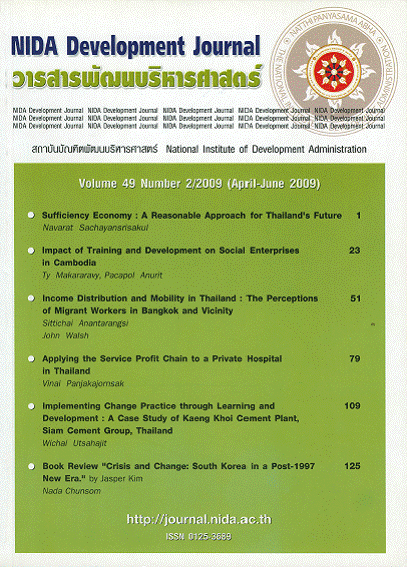Impacts of Training and Development on Social Enterprises in Cambodia
Keywords:
Cambodia, Social Enterprises, Training and DevelopmentAbstract
Social entrepreneurship has become a very attractive and much studied topic. It has become particularly prevalent in countries in which governments are unable to support societal needs and reduce societal problems. It has become recognized as a new problem-solving tool for different stakeholders: public organizations, private organizations, and civil society. Cambodia is one country in which the government has been unable to provide sufficient social services for its citizens. Many donors have tried to help Cambodia out of poverty through donations to Non-Governmental Organizations (NGOs), working to provide basic needs for Cambodian people. Some NGOs have tried to establish social enterprises in order to provide vocational training and thus create jobs for those people. This raises the question whether social enterprises will be able to assure the sustainability of the development. The face-to-face interviewing technique has been used to conduct interviews with directors and managers of several social enterprises aiming to assess the practical impact of the training in and development of social enterprise activities. The result of the study shows that training and development have a strong impact on individual and organizational performance, as well as organizational sustainability. The result of the study leads to recommendations proposed for social entrepreneurs in regard to sustainable development and financial autonomy.





